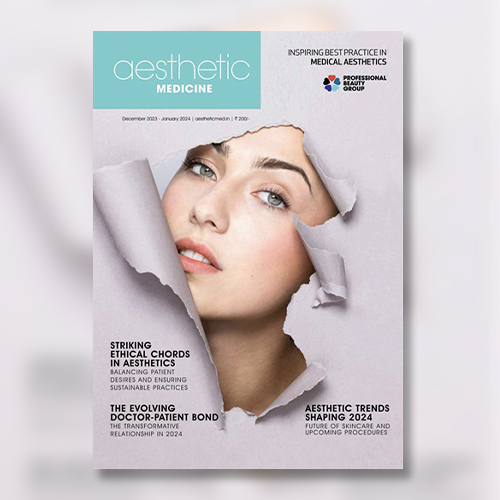Ever considered the distinction between plastic surgery procedures that genuinely require intervention and those fueled by addictive inclinations? Plastic surgery can make a huge difference in the lives of people who have problems with functional impairments, congenital anomalies, or post-traumatic deformities.
On the other hand, a strong desire for repeated cosmetic enhancements that might have negative effects characterizes plastic surgery addiction. Therefore, to ensure the procedures are beneficial for the patient, plastic surgeons do extensive evaluations and provide counselling. Practitioners can maintain professional integrity and improve surgical outcomes by prioritising patient well-being and aligning treatments with clinical needs.
In this regard, Dr Amit Gupta of Divine Aesthetics in New Delhi highlights pre-procedural protocols and patient expectations.
The significance of counselling
India has world-class plastic surgeons, and as a result, the demand for aesthetic plastic surgery procedures has skyrocketed. Before rushing into undergoing a procedure, it’s crucial to acknowledge that not every patient may qualify as a suitable candidate.
Dr Gupta, a renowned plastic surgeon, stresses the importance of expectation analysis. Patients must understand the realistic outcomes of their desired procedures to avoid any disappointment later on. After all, a well-informed patient is a happy and satisfied patient!
Analysing psychological factors in patient assessment
If you plan to do surgery, it’s important to know that there’s more to it than just the physical aspect. It’s crucial to consider the patient’s psychological state before proceeding with any procedure. This means looking at factors like stability, financial readiness, and motivation to determine if they’re a good candidate for surgery.
Consider patients’ unrealistic expectations and concerns to guide them toward setting achievable goals. By addressing these issues, patients can ensure that they have a positive experience and can get the results they’re looking for.
Enlightening safety aspects
Ensuring safety is paramount, and you should take transparency very seriously. Every medical procedure comes with its own set of risks, and it’s crucial to have open and informative discussions with patients.
Whether it’s a tummy tuck or a “mummy makeover,” every patient deserves to understand the potential risks before giving their consent.
Overseeing repetitive procedures
Differentiating between routine maintenance treatments and addictive behaviours is of utmost importance. While periodic Botox treatments can be part of one’s beauty regimen, frequent and unnecessary invasive procedures such as breast shaping or liposuction may signify an addiction.
Dr Gupta strongly advises against enabling unhealthy dependencies by refusing to perform unnecessary repeat procedures. Practising responsible and ethical medicine should be your top priority.
In conclusion
While some want plastic surgery to correct their physical imperfections or deformities, others may be driven by addictive tendencies. So, an aesthetic plastic surgeon should always consider the patient’s well-being and ability to make informed decisions during pre-procedural evaluations and counselling.
For responsible practice and patient safety, psychological tests and safety rules are necessary. By following these principles, professionals maintain high levels of professionalism and help their patients have good surgical experiences.










